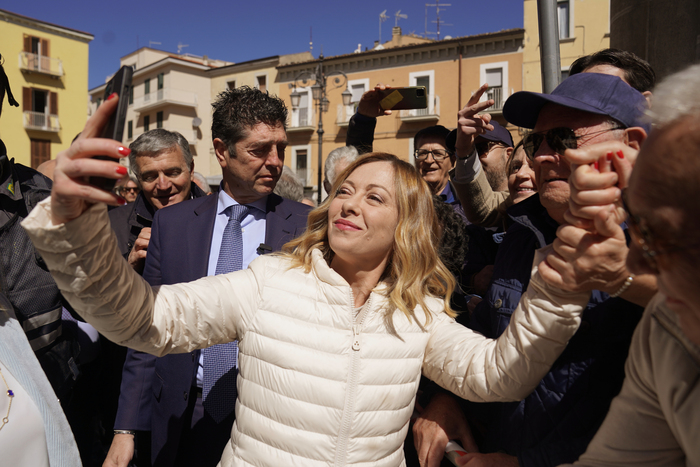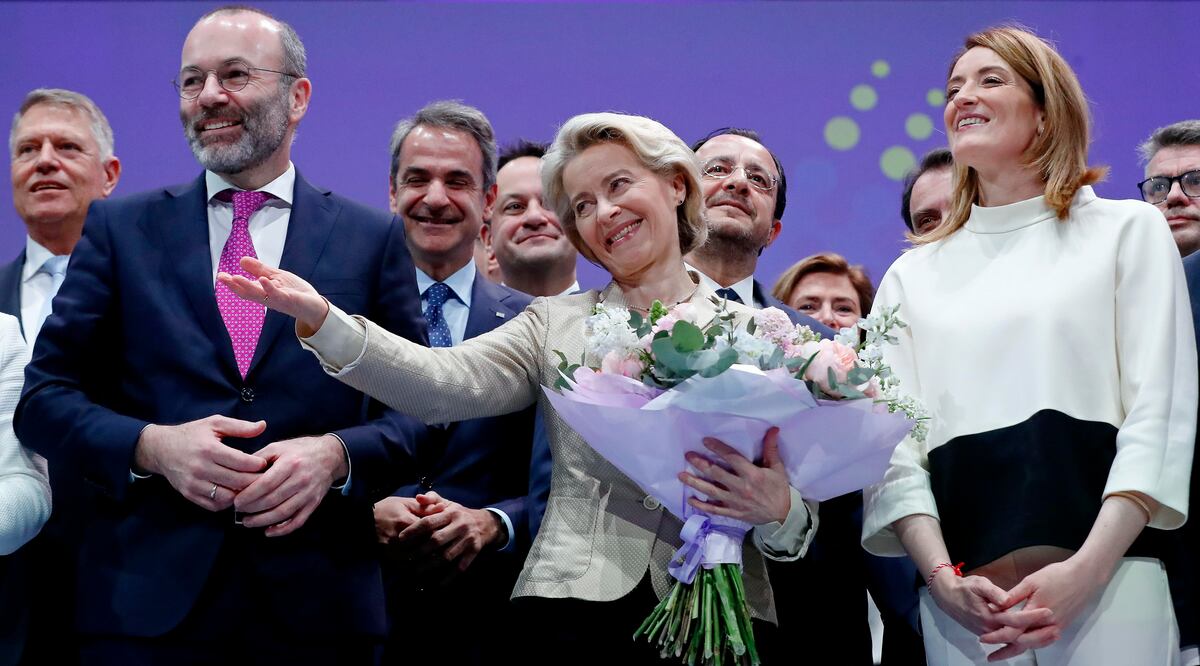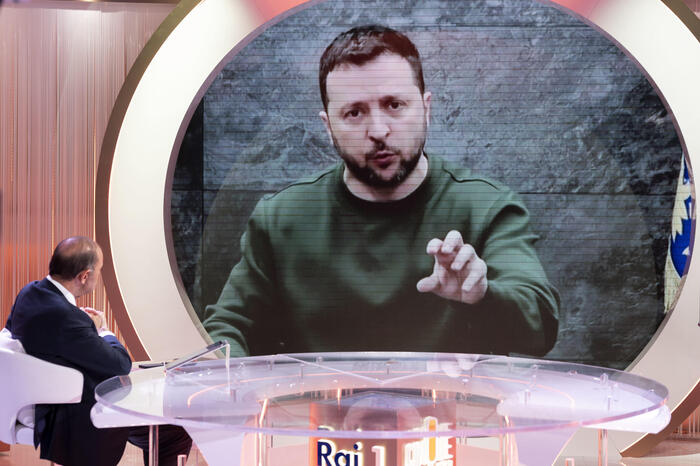Dutch political scientist Cas Mudde (56) has been analyzing the rise of the far right for decades. And he's not optimistic. Movements that threaten liberal democracies are on the rise and their populist discourse permeates the general debate without us noticing. "The radical right has not moderated; It is the mainstream that has been radicalized," he warns. Resident in the United States – he has been a professor at the University of Georgia – since 2008, Mudde takes advantage of his trips to Europe to give talks, meet with his colleagues in several countries and enjoy soccer. He has seen a match in Berlin, where he attends us before flying to Barcelona to participate in Orwell Day, which is held this Tuesday at the Center for Contemporary Culture (CCCB). Author of The Far Right Today and the much-cited Populism: A Brief Introduction, Mudde turns to Spanish politics to explain concepts. Vox is dangerous, he says, because it moves well within the system and will probably have the PP as an ally.
Question. You explain that in three decades Western societies have gone from excluding radical discourse to normalizing it. How did this happen?
Answer. In the late nineties there was a big taboo on xenophobia and nationalism. But September 11 came and the answer was Islamophobia and prejudice. Once in that dynamic, only one party had a negative discourse on immigration and that was the extreme right. Others began to talk about immigration as a problem, as a threat to identity and national security. And once you adopt the framework, you adopt the positions. Then the difference between you and the far right narrows and there is less reason to exclude it.
More information
Michal J. Sandel, philosopher: "The left must offer a positive view of patriotism"
Q. How do you define that ideology?
A. The core is not socio-economic, but socio-cultural and is based on nativism, which is a xenophobic form of nationalism. They want their state to be inhabited primarily by the nation itself, which they define strictly, and they regard the foreign as a threat. Combined with authoritarianism, a vision of law and order and, in many cases, populism. And what we call welfare state chauvinism. They support him, but for his people.
Q. He said that tolerance and inclusion were advancing in most countries, especially among young people. How do you explain the reactionary wave?
A. Who votes? The elderly, especially. Older people are not necessarily more xenophobic, but for them immigration has become a problem and an identity issue.
Q. And what is the role of conservative parties in that context?
A. We are seeing a radicalization of the mainstream and, in particular, the mainstream right. The PP, for example, is much more right-wing today, especially in socio-cultural matters, than it was 30 years ago. In France, the Republicans are like National Rally. There are some exceptions, such as the CDU in Germany. The center is moving to the right for electoral gains. In a while they will be indistinguishable from the far right. And as Jean-Marie Le Pen said, people will choose the original before the copy.
Q. Is Vox dangerous?
A. A lot. Vox is a radical right-wing party, just like the National Front or AfD. The fact that they come out of the mainstream [of the PP], that they are professional politicians, that they are softer than others does not mean anything. Ideologically it is nativism, authoritarianism and populism. There is danger because they are fundamentally anti-liberal democracy, they have problems with minority rights, the separation of powers and the rule of law, like all radical right-wing parties. And they are particularly dangerous because they are competent. Vox will want to work within the system and will probably have an ally in the PP.
Q. In what sense?
A. Vox is like Meloni in Italy and, in part, like Orbán in Hungary: they want to change the system from within. And you know how.
"Progressives love fear of the far right. They swallow any story, even a made-up one. It is always the most read. I call it 'far-right porn.'"
Q. Does it make sense to turn an election into an "either me or the extreme right" plebiscite (as Prime Minister Pedro Sánchez has done)?
A. The problem with centering elections on the far right is that the party against wins, but so does the far right. Because it has been at the heart of the debate. The PP, of course, is going to try to counter that by saying: if you want to avoid Vox, give us the majority.
Q. And will he enter that game?
A. Honestly, I think the PP is a bigger short-term threat to liberal democracy than Vox. Vox is not going to reach 30% overnight. If it gains influence, it will be indirectly because the PP moves to the right or directly through a coalition. So Pedro Sánchez needs to propose that plebiscite. The problem is that the debate will be limited to that. And Spaniards will not talk about housing, education or health.
Q. What responsibility do the media have?
A. The media are often seen as part of the democratic arena, and they are not. They are a business and they need to sell. Many journalists are concerned about the far right, but they work in companies that thrive on that content. And the far right sells, scandals sell.
Q. It happened with Trump, right?
A. Nothing proves it better. CNN's ratings, subscriptions to The New York Times or The Washington Post skyrocketed. Progressives love to be afraid of the far right. They swallow any story, even those invented about a populist international. It is the most read. I call it "far-right porn."
Q. Europe fears another Trump.
A. Normal, he is unpredictable and would be the most powerful person in the world as president and leader of the largest army. And Ron DeSantis is ideologically identical. It is as nativist and authoritarian as he is, and both are fundamentally undemocratic.
Q. We have anti-democratic leaders in Europe. How does the European Union deal with them?
A. It has long dominated the lesson of Hungary. If you're authoritarian at home but loyal in Brussels, the EU lets you do it. Now comes a new lesson from Poland. If you're authoritarian at home but play fair in terms of NATO or foreign policy interests, that's fine. Right now Orbán is marginalized, but not because of liberal democracy, but because of his pro-Putin stance. The prevailing lesson is that by being staunchly anti-Putin, I will be left alone.
Sign up for the weekly Ideas newsletter here.
Subscribe to continue reading
Read without limits
Read more
I'm already a subscriber









/cloudfront-eu-central-1.images.arcpublishing.com/prisa/72P5ZYTEFHLNFRHZVR6CRUERCU.jpg)
/cloudfront-eu-central-1.images.arcpublishing.com/prisa/2C5HI6YHNFHDLJSBNWHOIAS2AE.jpeg)




